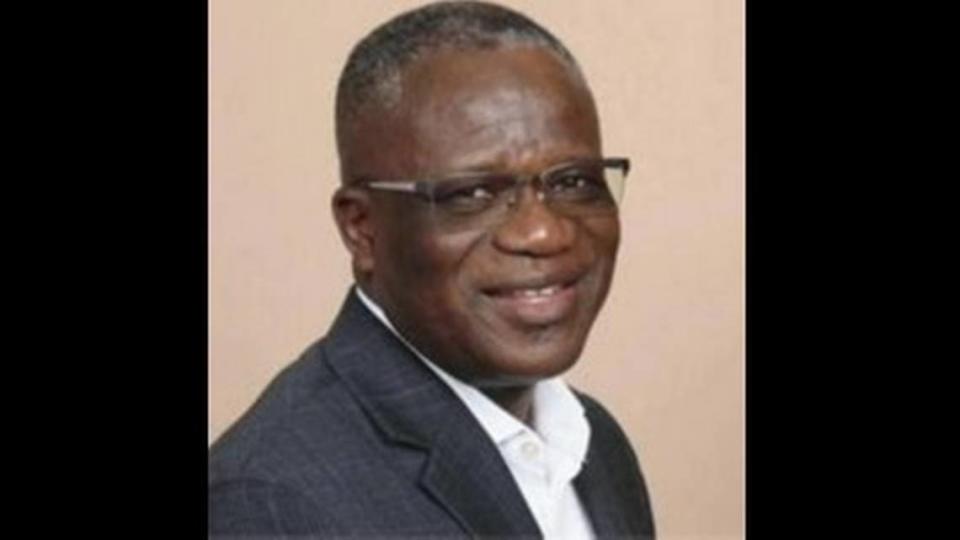Kentucky State University’s new president is a familiar face in state’s education

Kentucky State University has named Koffi Akakpo, the president of Bluegrass Community and Technical College in Lexington, as the next president of the university.
Akakpo will start as president as early as July 1. The university began a search for the next president last year, but the search was halted when House Bill 250 was passed, ordering the university to stop its search for one year. The university resumed its search in March and announced three finalists for the position in early May.
Akakpo is the current president and chief executive officer at Bluegrass Community and Technical College in Lexington. He previously held positions at North Central State College and Central State University, a historically Black university in Ohio.
He also previously worked as the department secretary and director of the Department of Natural Resources for the state of Ohio.
During his four years at BCTC, the college has added new programs, increased enrollment and seen its graduation rate increase from 24 percent to 35 percent, which includes increases among Black and Hispanic students, according to the news release.
“My work focuses on championing postsecondary institutions, tackling the uncertainty they face, and securing their current and future prosperity, particularly through bold thinking, transformational problem-solving, and strategic partnership building,” Akakpo said in the announcement.
The university has been without a permanent president since July 2021, when then-president M. Christopher Brown II resigned amid growing concerns about KSU’s financial health and multiple lawsuits accusing college officials, including Brown, of various acts misconduct.
“Under Dr. Akakpo’s leadership, the University can advance in many areas, and we are pleased to hand the baton to him at such a critical time in the institution’s journey,” Tammi Dukes, chair of the school’s Board of Regents, said in the news release. “We are confident he will bring the vision and execution required to help Kentucky State University continue to advance and succeed in its critical mission of enhancing society and impacting individuals by preparing future generations of engaged citizens and effective leaders.”
In a statement from BCTC, Akakpo was praised for his “students first” approach.
“While the students, faculty, and staff are saddened to see him leave, he is leaving BCTC in a significantly stronger position than when he arrived,” the statement read. “We of course wish him well and look forward to following his success at Kentucky State University and strengthening our partnership with them. Information will be provided soon on BCTC’s search process for a new president.”
Search process
KSU is the only public historically Black university in the state. The three finalists for the position all had experience in higher education leadership and had ties to Kentucky. KSU used search firm Myers McRae Executive Search and Consulting to assist with the search.
Interim President Ronald Johnson’s contract expires in June. He was hired last June on a one-year contract to fill the position while KSU addressed budget concerns.
The board of regents have emphasized the need to fill the position of president, and selecting someone who can work to get the university on sound footing in the coming years.
When the board announced they would be resuming the search in March, with the goal of selecting a president within three months, then-board chair Gerald Patton said a quick timeline was needed. Presidential searches can often be a semester- or year-long process for universities, involving multiple rounds of interviews, meetings with employees and students and on-campus visits.
In order to name a president before Johnson’s contract expired, KSU conducted the search on a compressed timeline.
“We are confident that the foundation laid by this extensive presidential search process — involving input and deliberation from a wide range of constituents and stakeholders, including both internal and external campus community members — allowed us to choose the best leader for Kentucky State and its future,” Dukes said in Tuesday’s announcement.
KSU faced financial issues, leadership changes
KSU has experienced a tumultuous several years, including the multi-million dollar budget deficit, a management improvement plan required by the state and a special examination by the Office of the Auditor of Public Accounts. The special examination of the university’s finances revealed widespread overspending, a lack of financial control, and misuse of credit cards and university funds.
It also found poor internal controls and communication, failure to ensure an effective budgeting process and widespread overspending and credit card usage. The report identified more than $1.3 million in credit card transactions without proper documentation, and in one instance, the use of a fund that was meant for faculty, staff and student recognition was used to pay for the rental of the Kentucky Castle for a board retreat.
Millions in federal funding for the university is also at risk, according to the report, because of improper internal controls and documentation.

 Yahoo Sports
Yahoo Sports 